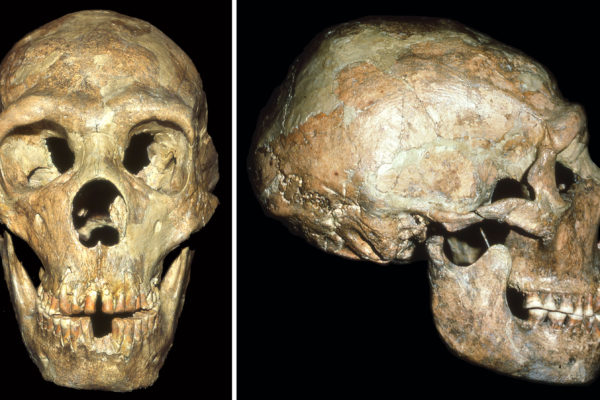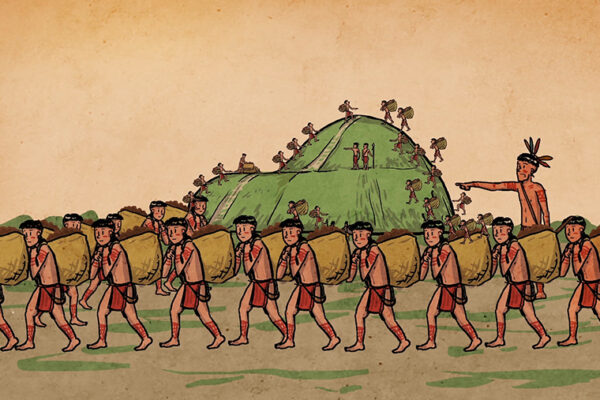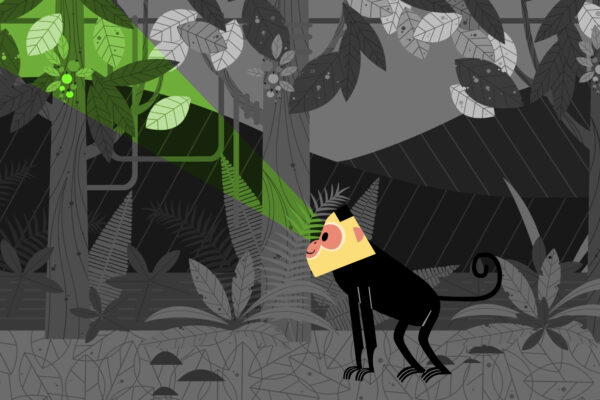Annual contest showcases ‘old friends’: photography and anthropology
PhD candidate Dick Powis likes to joke that if a picture is worth a thousand words, then he should be allowed to submit 100 photographs for his dissertation. His photo is one of many showcased in the Department of Anthropology annual photo contest. Glenn Stone, a professor in Arts & Sciences, started the contest a decade ago to showcase the stunning photography his students bring back from the field.
Prehistoric food globalization spanned three millennia
Prehistoric peasant farmers struggling to put more food on the table fueled the global spread of some of the world’s first and most important domesticated grain crops beginning as early as 7,000 years ago, according to an international study led by anthropologists at Washington University in St. Louis.
Older Neandertal survived with a little help from his friends
A young Neandertal left deaf and partially paralyzed by a crippling blow to the head about 40,000 years ago must have relied on the help of others to avoid prey and survive well into his 40s, suggests a new analysis published Oct. 20 in the online journal PLoS ONE.
Targeted excavating leads to lost city
Using modern, high-tech analysis tools, anthropologist Michael Frachetti is leading groundbreaking research on an ancient city high in the Uzbekistan mountains. The site may hold clues to how medieval civilizations changed when diverse communities integrated — and even suggest how we might consider our own current initiatives of global community-building.
Mystery in Louisiana
Lately it’s been fashionable to say that hunter-gatherers lived better than we do. They had more free time, they followed more natural sleep cycles, and so on. But is our picture of hunter-gatherer society right? A giant earth mound in Louisiana suggests we know less than we think. Washington University anthropologist Tristram R. Kidder explains.
Study: Golden Rice falls short of life-saving promises
Heralded on the cover of Time magazine in 2000 as a genetically modified (GMO) crop with the potential to save millions of lives in the Third World, Golden Rice is still years away from field introduction and even then, may fall short of lofty health benefits still cited regularly by GMO advocates, suggests a new study from Washington University in St. Louis.
Smelling DNA
What do you do if you are trying to save a very rare and shy animal? How do you even find them? Anthropologist Joseph Orkin, PhD ’14, called in Pinkerton. No, not the detective agency, the dog.
Hidden Talents of the Color Blind
Think being color blind is a disadvantage? Washington University anthropologist Amanda Melin says don’t be so sure. Color blindness actually may give some animals, and people, a competitive edge.
‘Man the Hunter’ theory is debunked in new book
You wouldn’t know it by current world events, but humans actually evolved to be peaceful, cooperative and social animals. In a new book, an anthropologist at Washington University in St. Louis goes against the prevailing view and argues that primates, including early humans, evolved not as hunters but as prey of many predators, including wild dogs and cats, hyenas, eagles and crocodiles. Despite popular theories posed in research papers and popular literature, early man was not an aggressive killer, argues Robert W. Sussman, Ph.D., professor of anthropology in Arts & Sciences.
Early humans were prey not killers
Anthropology Professor Robert Sussman goes against the prevailing view and argues that primates, including early humans, evolved as prey of many predators.
Older Stories








